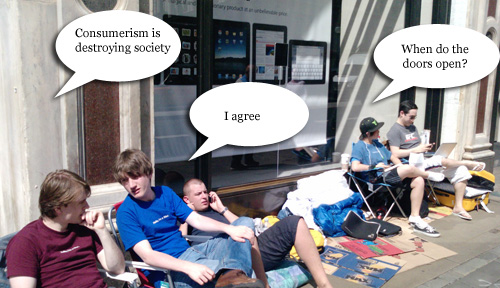
Now we know why what was widely called the “Google Review” into intellectual property came to the conclusions it did. And we have it from the horse’s mouth: not Google, but Professor Ian Hargreaves and his team at the IPO, who “guided” him.
If you recall, a year ago the Prime Minister David Cameron revealed that the Google founders that they could never have founded Google in the UK, because of its copyright law. Even Google could never substantiate the quote, or provide a citation. Rather than getting a public inquiry, and shaming, of a foreign corporation for misleading our PM so badly – Google got the government to explore how the law could be altered… to benefit companies like Google.
So the review began with a mistake, and its guiding philosophical idea was a naive, simplified, and fantastical version of the world. This set the tone for what followed.
Hargreaves came across as wry and likeable, as he always does, but his words revealed the bien pensant view of the internet, its potential, and its commercial challenges.
“Politicians are afraid to address [copyright] because of fear of damaging the entirely legitimate and desirable wishes of musicians and other creators to have a fair level of protection, so they can make a return on their own work. I do disagree how this machinery has spread, and become an undesirable regulatory restraint on the internet [our emphasis] and the internet’s effects on the economy“
He continued:
“That is a very, very big risk for an advanced knowledge economy like the UK to run. In my view we can’t afford to run it. It’s urgent; the government has to take the action I have recommended it take”.
The sky was falling, he’d felt a piece of it land on his head. And he hammered home this urgency in his conclusion, in case you missed it:
“The digital revolution is not one-third complete, based on the penetration of the internet around the world. If we don’t ‘Get with the Pace‘, we will pay a significant economic price.”
There are several flaws to this approach.
Read more
 Talk about an inconvenient fact. A survey into US attitudes to internet piracy shows strong public support for blocking access to websites guilty of serial copyright infringement. No fewer than 58 per cent support the idea of ISPs blocking the pirate sites, and 36 per cent disagree with this. Of the respondents, 61 per cent want sites like Facebook to take more action to screen for infringing material.
Talk about an inconvenient fact. A survey into US attitudes to internet piracy shows strong public support for blocking access to websites guilty of serial copyright infringement. No fewer than 58 per cent support the idea of ISPs blocking the pirate sites, and 36 per cent disagree with this. Of the respondents, 61 per cent want sites like Facebook to take more action to screen for infringing material.




